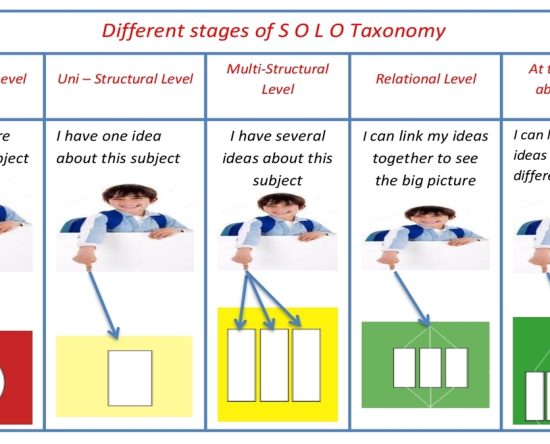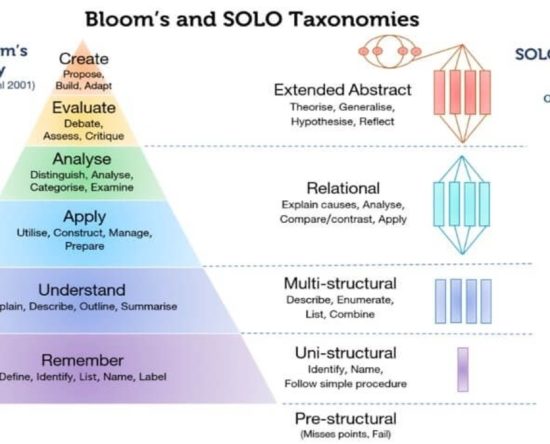
SOLO Taxonomy versus Bloom’s Taxonomy
SOLO or Bloom? What to prefer? Whether you prefer SOLO or Bloom’s doesn’t matter. What does make a difference is the deliberate and accurate alignment
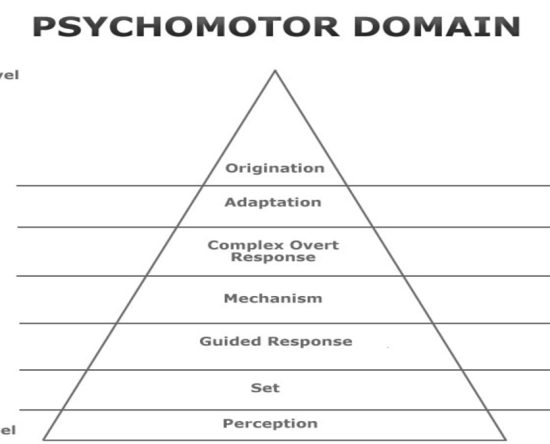
Psychomotor Domain — Simpson’s Taxonomy
The Simpson’s psychomotor domain (1972) includes physical movement, coordination, and use of the motor-skill areas. Simpson’s psychomotor domain focuses on utilizing motor skills and coordinating them.
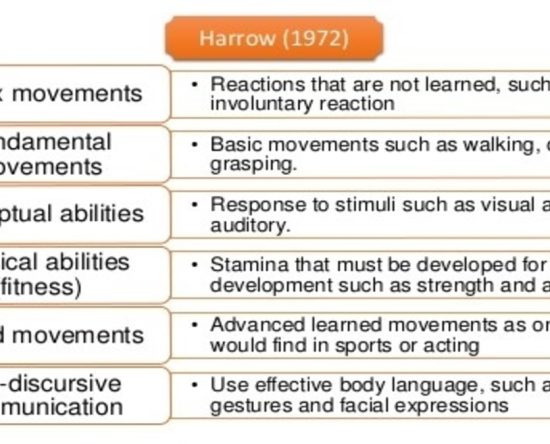
Psychomotor Domain — Harrow’s Taxonomy
Harrow’s taxonomy (1972) of psychomotor domain focuses on the development of physical fitness, dexterity, agility, and body control to achieve a high level of expertise. Harrow’s taxonomy is organized according to the degree of coordination including involuntary responses and learned capabilities.
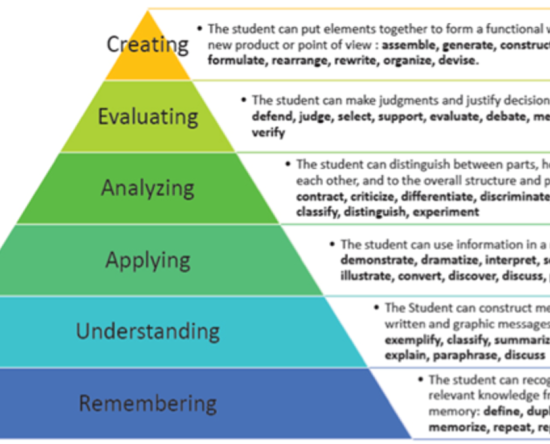
The Revised Bloom’s Taxonomy
Lorin Anderson, a former student of Bloom, and David Krathwohl (2001) updated and revised the Bloom’s taxonomy reflecting relevance to 21st century work for both students and teachers. The revisions they made in the Bloom’s taxonomy appear fairly minor; however, they do have significant impact on how people use the taxonomy. These changes can be […]
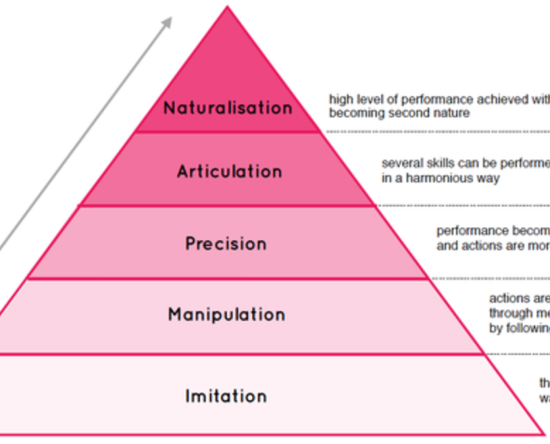
Psychomotor Domain — Dave’s Taxonomy
The Dave’s taxonomy of psychomotor domain includes utilizing motor skills and the ability to coordinate them. This psychomotor domain includes physical movement, coordination, and use of the motor-skill areas. Development of these skills requires practice and is measured in terms of speed, strength, endurance, coordination, precision, distance, procedures, or techniques in execution. The Dave’s psychomotor […]
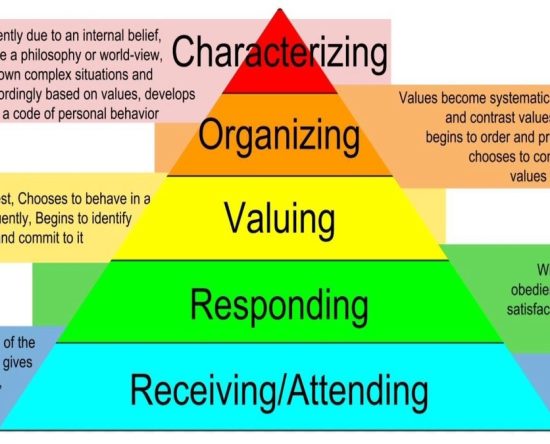
Affective Domain — Krathwohl’s Taxonomy
Krathwohl’s affective domain taxonomy is perhaps the best known of any of the affective taxonomies. The affective domain focuses on the attitudes, values, interests, and appreciation of learners. This domain is further categorized into following five levels;
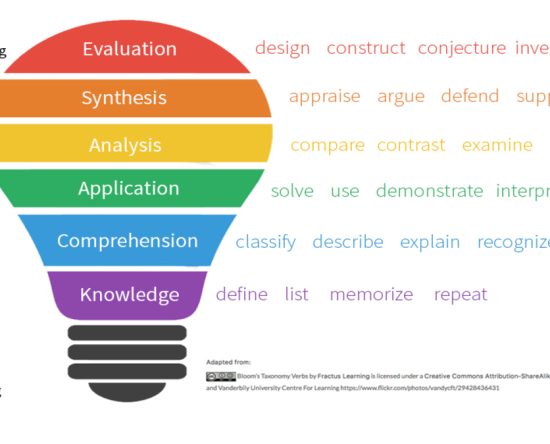
Cognitive Domain — Bloom’s Taxonomy
The cognitive domain involves knowledge and the development of intellectual skills (Bloom et.al, 1956). Six major categories of cognitive domain of Bloom’s taxonomy are Knowledge, Comprehension, Application, Analysis, Synthesis, and Evaluation.
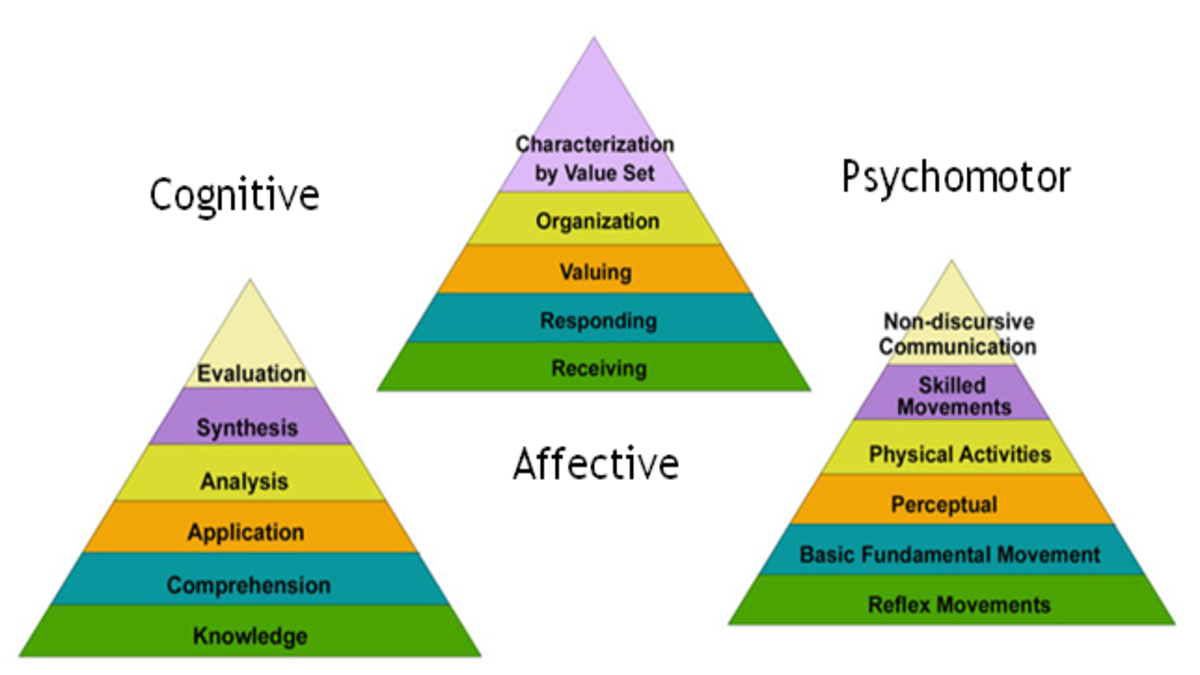
Bloom’s Taxonomy of Educational Objectives
Bloom’s taxonomy is a classification system used to define and distinguish different levels of human cognition—i.e., thinking, learning, and understanding. Cognitive, Affective and Psychomotor domain.
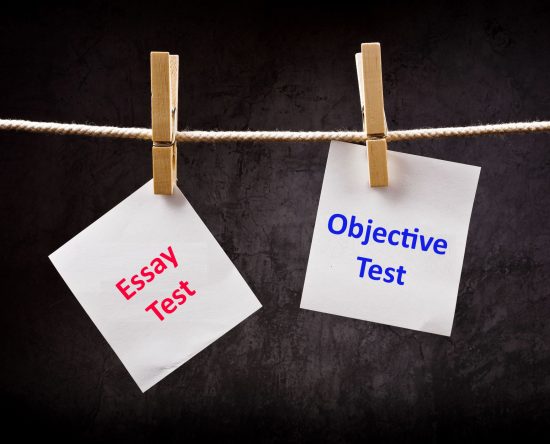
Essay Test vs Objective Test
Essay Item An essay item is one in which the examinee relies upon his memory and past associations to answer the questions in a few words only. Since such items can be answered in whatever manner one likes and these items are also known as free answer items. Essay items are most appropriate for measuring […]

